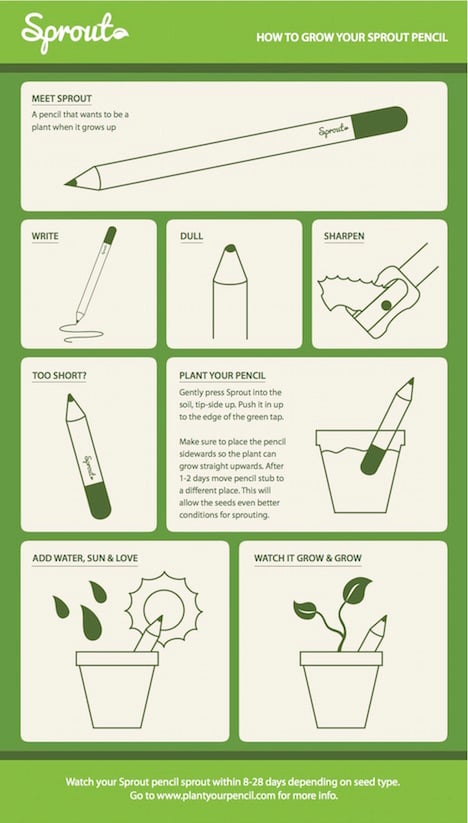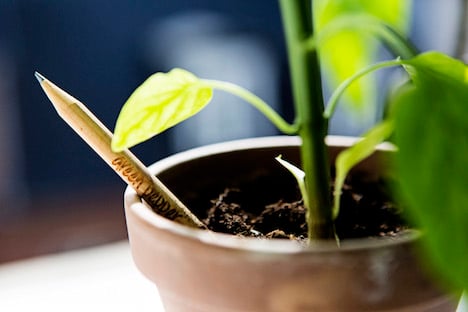
ENVIRONMENT
Danish eco-pencils growing on global market
The sustainable pencil company Sprout has reached a larger audience outside of Denmark with its pencils that turn into vegetables.
Published: 10 September 2015 11:52 CEST

Sprout old pencils will eventually become plants. Photo: Sprout.
Sprout, a Danish firm based in Taastrup, is quickly growing success outside of Denmark. The company's sustainable pencils that turn into plants and vegetables recently caught the attention of the influential US television programme The Today Show, opening the product up to a much wider market.
The morning programme, viewed by millions of Americans, featured the sustainable pencils in a recent back-to-school feature, something the company hopes will give it a major boost in the US.
“It's really difficult to feature The Today Show; it sort of came out of the blue,” Sprout CEO Michael Stausholm told The Local. “The US market is very important for us. Right now about 90 percent of our business is within Europe, but the idea and the production comes from US. We want to get the European and American markets on the same level”
Sprout, which has pencils that can grow into 13 different plants, has also seen its popularity rise in European countries like Spain, getting featured in the newspaper El País and the parenting magazine Serpadres.
“Right now, our biggest market by far is Italy,” Stausholm said. “Maybe because the Mediterranean climate is better for planting and growing plants”.
The Sprout team told TV2 that their pencils may also soon be featured on the Martha Stewart Show, another programme with a massive audience in the US.
The concept behind Sprout is simple. The pencils contain seeds and once it is too short to write with anymore, you can just put it in a flowerpot with soil and water and wait for it to flourish. Within 8-22 days, depending on the seed variety, your old pencil will become a plant of basil, rosemary, coriander, cherry tomatoes or green peppers.

Url copied to clipboard!


 Please whitelist us to continue reading.
Please whitelist us to continue reading.
Member comments